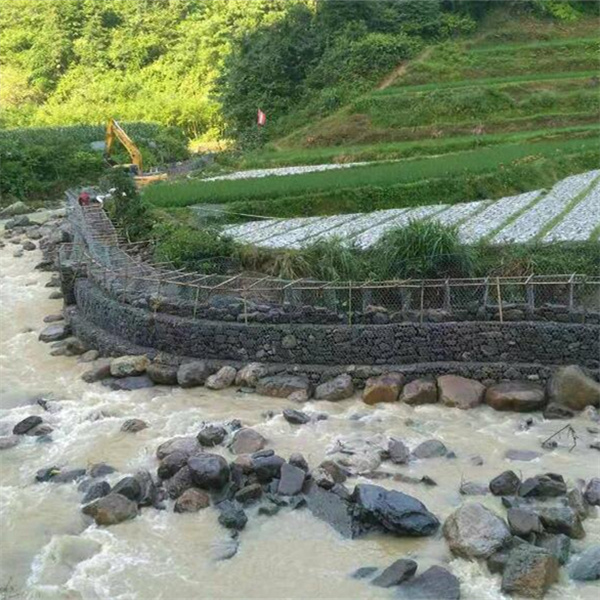ديسمبر . 21, 2024 13:13 Back to list
Innovative Solutions for Durable Gabion Wall Manufacturing and Design
The Significance of Gabion Walls in Modern Construction
Gabion walls, constructed with wire mesh containers filled with rocks or other materials, have emerged as a sustainable and versatile solution in the field of civil engineering and landscaping. The term “gabion” originates from the Italian word gabbione, meaning big cage, which aptly describes their structure. These walls have gained popularity due to their numerous advantages, including environmental benefits, cost-effectiveness, and aesthetic appeal. This article will delve into the factors contributing to the growing demand for gabion walls and the role of factories in their production.
Environmental Benefits
One of the most significant advantages of gabion walls is their positive impact on the environment. They are often constructed using local materials, such as stones and rocks, which minimizes transportation costs and reduces the carbon footprint associated with manufacturing materials like concrete and steel. By utilizing natural resources, gabion walls contribute to sustainable building practices, aligning with the global trend towards eco-friendly construction solutions.
Moreover, gabion walls are known for their ability to manage water flow effectively. Their permeability allows water to pass through, reducing the risk of flooding and erosion. This makes them particularly suitable for riverbanks, slopes, and other areas prone to water-related challenges. The use of gabion walls can help stabilize soil, minimizing land degradation while enhancing the ecosystem by preserving plant and animal habitats.
Cost-Effectiveness
From a financial perspective, gabion walls present a cost-effective option for construction projects. Their simplicity in design and ease of installation reduce labor costs significantly. Unlike traditional retaining walls that require skilled labor and extensive equipment, gabion walls can often be constructed with minimal technical expertise. This accessibility democratizes construction, allowing small businesses and communities to adopt them without the burden of high expenses.
Additionally, the durability of gabion walls contributes to their long-term cost advantages. Made from galvanized steel wire or PVC-coated wire, these walls are resilient against harsh weather conditions and do not require continuous maintenance. Investing in gabion walls not only reduces initial construction costs but also lowers long-term maintenance expenses, making them a wise investment for property owners and developers alike.
gabion walls factories

Aesthetic Appeal
Another noteworthy aspect of gabion walls is their versatility in aesthetic applications. Fabricators are increasingly creating gabion walls that cater to various design preferences and architectural styles. These walls can be customized in terms of size, shape, and the type of fill material used, providing endless possibilities for creative expression.
Landscape designers and architects appreciate the natural aesthetics of gabion walls, as they can blend seamlessly with their surroundings. Whether used in gardens, parks, or as decorative elements in urban spaces, gabion walls enhance the visual appeal of any project. Furthermore, the ability to incorporate different materials—such as colored pebbles, bricks, or even recycled materials—adds a unique touch to their design, making them a whimsical choice for modern construction.
The Role of Gabion Wall Factories
As the demand for gabion walls continues to rise, the role of specialized gabion wall factories has become increasingly essential. These factories focus on producing high-quality gabion products that meet industry standards. They invest in advanced manufacturing technologies that ensure the durability and strength of the wire mesh cages, which are crucial for the overall stability of gabion walls.
Moreover, these factories often work closely with architects, engineers, and contractors to provide tailor-made solutions that fit specific project requirements. Their expertise allows them to innovate and adapt to modern design trends, ensuring that gabion walls remain a competitive option in the ever-evolving construction landscape.
Conclusion
Gabion walls are a testament to the harmonious blend of functionality, sustainability, and aesthetic appeal in contemporary construction. Their environmental benefits, cost-effectiveness, and versatility have made them a popular choice among builders and designers alike. As the need for sustainable construction practices grows, the contribution of gabion wall factories in producing quality materials and fostering innovation will undoubtedly play a pivotal role in shaping the future of construction. Embracing gabion walls not only offers practical advantages but also encourages a deeper appreciation for the natural world around us.
-
HESCO Gabion Baskets for Coastal Erosion Prevention
NewsAug.22,2025
-
Longevity and Durability of River Rock Gabion Walls
NewsAug.22,2025
-
How to Integrate Gabion 3D Walls in Urban Planning
NewsAug.22,2025
-
Reno Mattress Gabion Applications in Civil Engineering
NewsAug.22,2025
-
How to Install Wire Mesh for Gabion Baskets Properly
NewsAug.22,2025
-
Best Materials for Filling a Chain Link Gabion
NewsAug.22,2025
-
Wire Mesh Thickness Impact on Gabion Wall Load Bearing
NewsAug.12,2025






